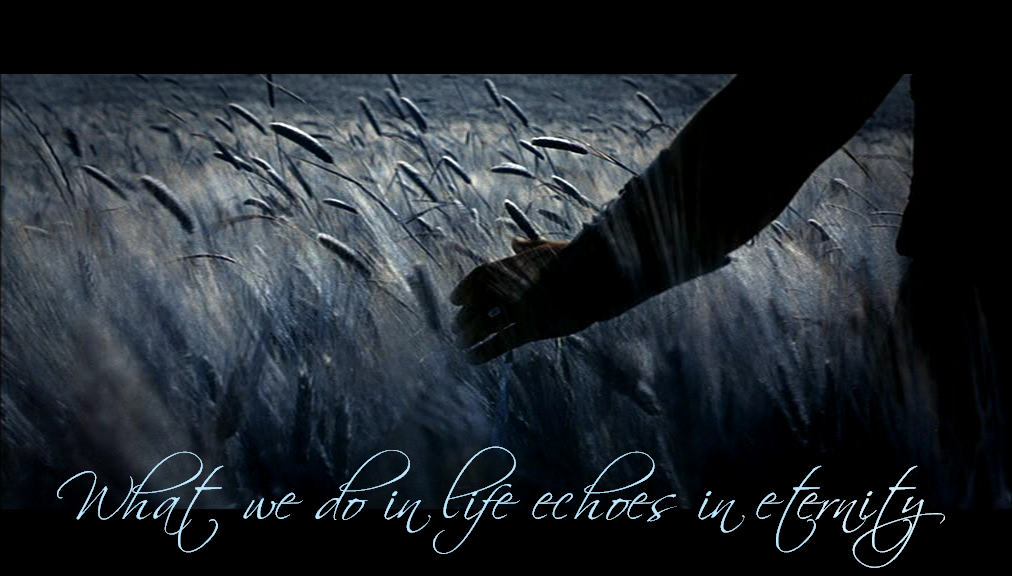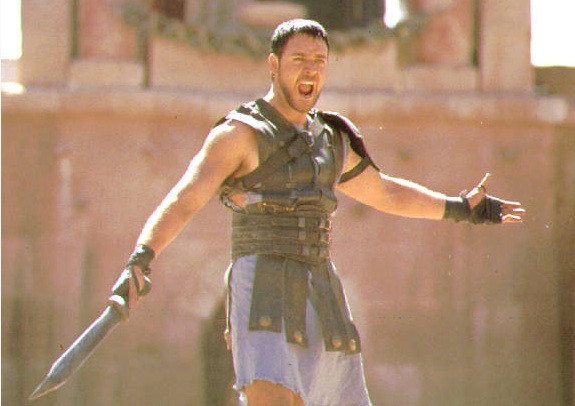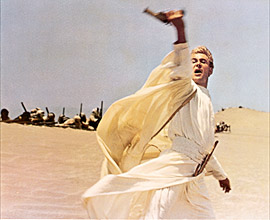In the ancient world, one of the most popular forms of
literature was hero-stories. Heracles
was the greatest of these tales, but Theseus and Perseus were marvelous
culminating in the epic of Odysseus. The
love of hero-stories has never abated. One
thing about us epic-loving, Hollywood-style film goers: we love our
heroes. We like them to be gruff, manly
and ready to face down any and all dangers.
We love our heroines, too, they’re fine in their feminine, maternal
manner (Ripley, Erin Brockovich), but heroes can get the heart pounding and
ready to do battle in whatever realm we do battle in. Indiana Jones, James Bond, Robin Hood. Some actors are just destined to play heroes:
Denzel Washington , John Wayne, Bruce Willis, Charlton Heston. To watch them is inspiring and their exploits
are powerful.
There is a form of epic which focuses on a single hero and
really tells the story through their eyes.
This give us the opportunity and the story develops as we see the action
from their persepective. They are a kind
of a bio pic, except often the hero is fictional (not that most bio pics aren’t
fictional). Frankly, the Ten
Commandments is one of these stories, as well as Braveheart and Rocky.
One of the great examples of a recent version of this story is
Gladiator, the fictional story of Maximus, a general whose only desire was to
go home to his wife and family.
Unfortunately, through political intrigue and the mechanizations of an
evil Roman prince, he ended up without his family or farm, enslaved and forced
to fight.
One of the great aspects of the film is the complexity of
Maximus’ character. His motivation
shifts from scene to scene, even as our motivations for what we do changes in
slightly different circumstances. He isn’t
bent on revenge throughout the entire film, neither is he some sad sack who
just does whatever comes his way (of course, if that was the case, he’d make a
pretty poor hero). Even as a slave, he
bends the circumstances around him. And
in the end, he turns the whole empire upside down.
It is a marvelous performance by Russell Crowe, but even
greater is the direction by Ridley Scott.
One of the most telling transformations is the brightness of Spain, even
in the midst of overwhelming sorrow, to the darkness of Rome, despite the grandeur
of a victor’s parade. The way the story
was told was perfect. I watched the
extended cut and while there could have been some trimming, there isn’t a scene
that isn’t necessary, that doesn’t forward the story. And while the conclusion might be inevitable,
we believe that it was in serious danger.
A powerful film and worthy of honor.
Are you not entertained?
One of the most powerful aspects of the film for me was the bloody entertainment that was demanded. The people wanted blood, wanted death and the master of the gladiators (masterfully played by Oliver Reed) gave it to them. But isn't this the position of Ridley Scott as well? Isn't he just granting his audience what they wanted, even though it is a bloody, horrific show? Yet, the film implies, to woo the populace with blood is akin to democracy, the hidden secret of power. Whether warriors or gladiators or heroes of any sort, this is the stuff of power, the building blocks of nations. Ultimately, a nation is a shared narrative of heroism that a large group of people all sense that they participated in.
But the greatest cinema hero, in my estimation, was the
focus of David Lean’s epic of 1962: Lawrence of Arabia. The debate over the “true” Lawrence is due
partly to the power and majesty of this film which depicts Lawrence as a charismatic
genius, tortured megalomaniac, brilliant madman and physically impervious warrior,
who died in a motorcycle wreck near his home in England. The film not only depicts Lawrence as changing
but as contradictory and impulsive.
Most heroes, like Maximus, are solid, powerful, a brick
wall. O’Toole’s Lawrence, however, is sometimes doubtful and broken. His greatest later deeds would not have occurred
were he not coerced by those around him.
Lawrence of Arabia’s approach seems more realistic. A hero is not a hero on his own, but must
have support and help to be that hero.
And once that support falters, so does the hero.
Peter O’Toole of course deserves acclaim, but so do his
co-stars Omar Sharif, Anthony Quinn, Alec Guinness and Jack Hawkins, who try to
piece together Lawrence even while they try to manipulate him to their causes. The
great mystery of the film is who Lawrence was, what made him tick. It seems that the answers the film gave was
adventure and glory.
But I think a significant aspect of the film is the
un-ending self-confidence of the man.
That no matter how many obstacles or failures Lawrence faced, his achievements
occurred because he knew that they could be done by no one else but
himself. That no one else would even
think of them because they were too outlandish to even consider. Only a man who knew he could not fail would
succeed in such accomplishments.
One of the last lines in the film give us wisdom about
heroes and what they can actually accomplish: “Young men make wars, and the
virtues of war are the virtues of young men. Courage and hope for the future.
Then old men make the peace. And the vices of peace are the vices of old men.
Mistrust and caution. It must be so.”
Heroes are powerful, but heroes cannot build community of normal people,
because, frankly they are not normal and do not know how to be normal. Heroes do great things and accomplish
much. But when it is time for small
things, heroes are not welcome. In the
end, heroes must fail. Their
accomplishments must rot. Were it not
for these heroes, the more solid, quieter accomplishments could not have occurred. But they must step aside.
For this reason, in both of these films, the hero must do
what they must do and then step aside.
Even like The Man Who Shot Liberty Valance. In order to accomplish a greater, more
peaceful West, John Wayne must do his accomplishments and step aside for Jimmy
Stewart to be the statesman. A true hero knows when to change the world,
but also when to ride into the sunset.









You've written a great essay on heroes, and on Lawrence in particular. You may enjoy our website, http://www.cliohistory.org/thomas-lawrence/, which offers an in-depth historical analysis of T.E. Lawrence, his influences and his legacy. This year, 2012, is the 50th anniversary of the release of the film, and bound to bring more attention to this truly interesting topic!
ReplyDelete